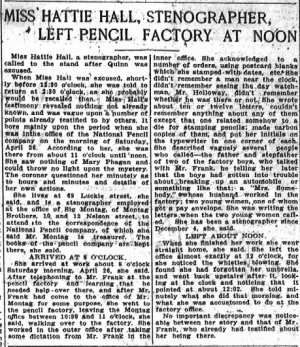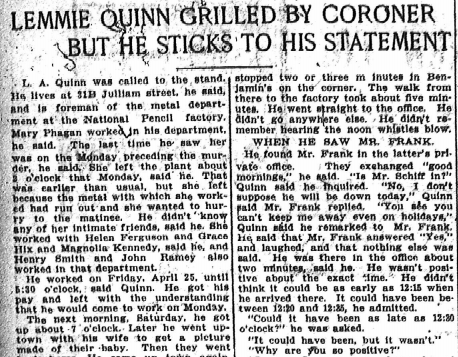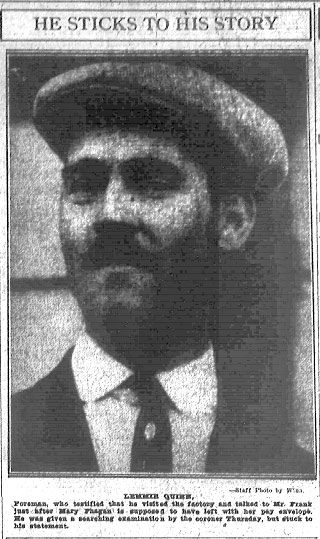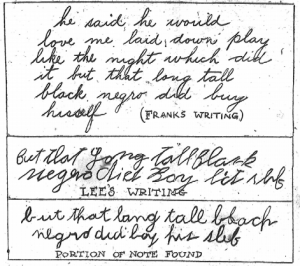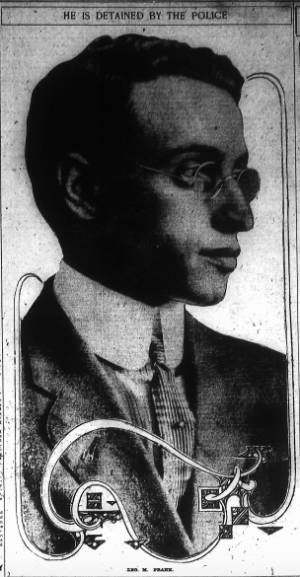Another in our series of new transcriptions of contemporary articles on the Leo Frank case.

Atlanta Journal
August 17th, 1913
While Defense Has About Forty Character Witnesses, It’s Not Believed That Their Testimony Will Take More Than One Day, and Frank Himself Will Probably Tell His Self to the Jury Some Time Tuesday.
REBUTTAL EVIDENCE WILL TAKE TWO DAYS AND THE ARGUMENTS OF ATTORNEYS TWO MORE
This Will Put the Case In the Hands of the Jury at the End of the Week – All Interest is Now Centered in the Witnesses That the Solicitor Will Put on the Stand In an Effort to Break Down Fine Character Showing Made by Frank.
The present week will see the end of the trial of Leo M. Frank charged with the murder of Mary Phagan, all attorneys connected with the case believe.
Counsel expect to conclude the young factory defense certainly before the end of Tuesday morning’s and probably during the day Monday.
Continue Reading →











